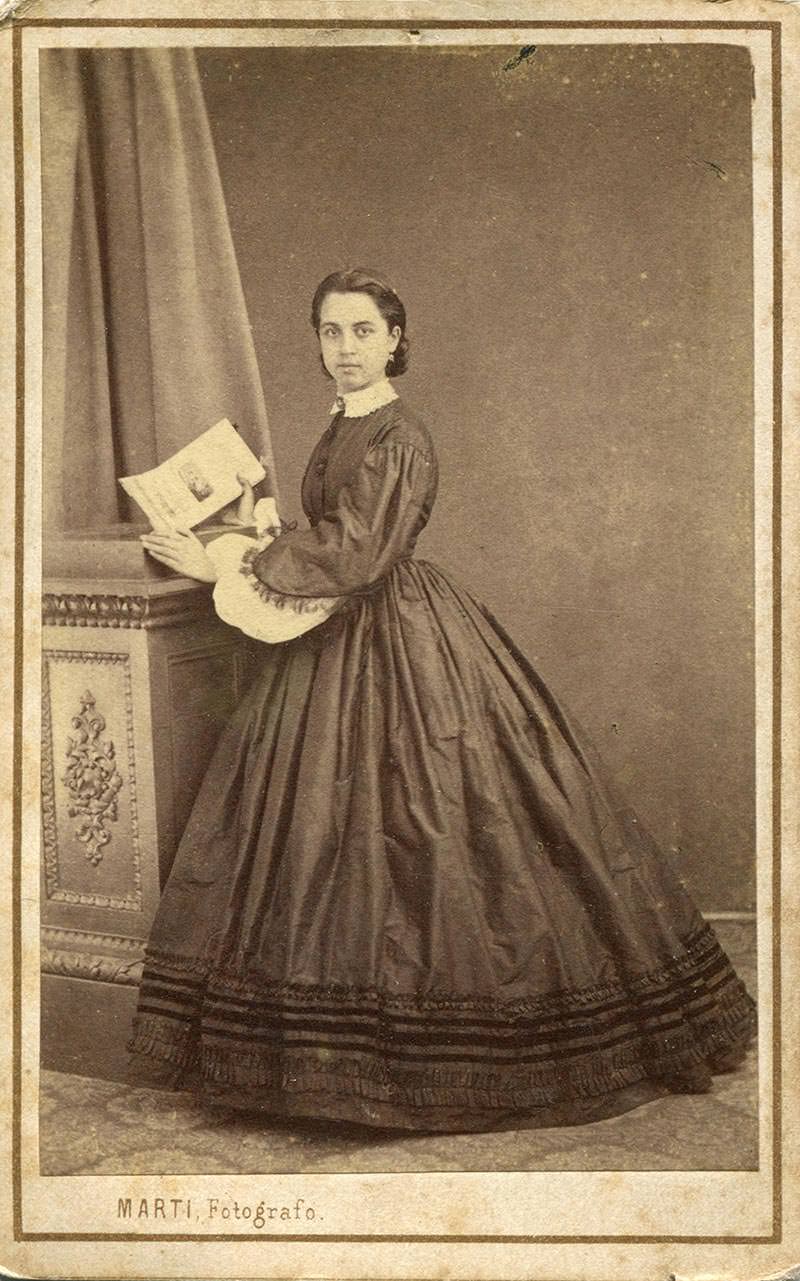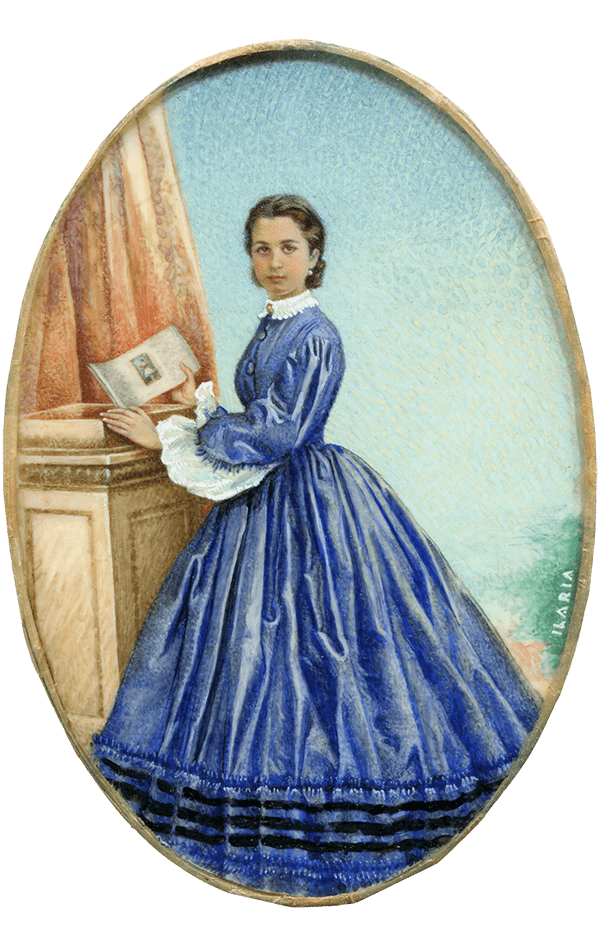Beautiful, attractive and loved by her two husbands, Juana Rebasa, must have suffered herself and made her three daughters suffer as well: Mercedes Llobera, Spanish, from her first marriage; Josefina and Catalina Oliver, Argentinian, from her second one.


The two sisters silenced their mother’s mental problem to their children and the latter to their grandchildren. Juana Rebasa is avoided in the family oral story, and is omitted in letters and personal diaries. It is only insisted upon her on being ‘a little nervous’ or ‘undergoing a slight post-partum depression’.
However, the death record of the 9th section of the Civil Registry in the capital city specifies: ‘(…) I declare that Juana Rebassa, aged forty-six, married, Spanish; died in this Hospice for Demented Women yesterday at midnight. She has not attested, Buenos Aires, October the nineteenth one thousand eight hundred and ninety-four. M T Podestá Doctor (…)’. (Hospice Director`s signature, Moyano Hospital nowadays).
Josefina silences this pitiful incident in her diary. In the few lines in which she mentions her and writes ‘Mamá’ she then hides her mother, in a subsequent rewiting, behind the name Maria Comas, a friend she hardly sees.
She replaces the letters of the word ‘Mamá’, and turns them into ‘María’, adding the surname ‘Comas’ above. She changes the second ‘m’ in ‘Mamá’ for an ‘r’ and an ‘i’. The written accent on letter ‘a’ in ‘Mamá’ is used for the written accent in the ‘í’ in ‘María’.
“Friday 6th – Lola Planells came with Juanito, they didn´t find us. We went to see María (previously ‘Mamá’, the barter of letters and the addition of ‘Comas’ above are visible).
“Thursday 18th- (…) María died Juana Rebasa at midnight” (María : previously ‘Mamá’; encima Juana Rebasa above Juana Rebasa added years later on another illegible writing which would seem to say ‘Comas’.)
Silence and concealing force Josefina to capture, in the visual language of photography, a different expressivity from the spoken or written one, within it she has the freedom of saying with no limits, no taboos, of crossing barriers imposed by society.
Josefina Oliver places her energy, intuitively, towards artistic creation in response to pain and the fateful events she undergoes since her childhood and all along her life.





